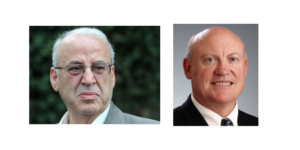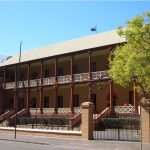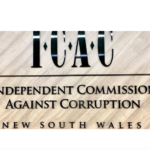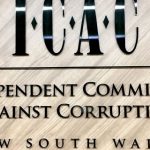The Offence of Misconduct in Public Office in New South Wales

A New South Wales Supreme Court Justice has found former Labor Ministers Eddie Obeid and Ian Macdonald, along with Mr Obeid’s son Moses, guilty over a corrupt tender scheme which netted them a windfall in the order of $30 million.
Justice Elizabeth Fullerton, who heard the case without a jury, has been presiding over the case for almost a year.
This week, her Honour delivered a guilty verdict against the three men, finding beyond a reasonable doubt that they had conspired to wilfully commit misconduct in public office over the allocation of coal licences in New South Wales in 2008.
Eddie Obeid and his son Moses were found to have conspired with Ian Macdonald – the minister responsible for mineral resources at the time – to grant a lucrative coal exploration licence over Obeid’s family farm, Cherrydale Park, in the Bylong Valley which crosses the Great Dividing Range between the Goulburn River National Park and Wollemi National Park, west of the upper Hunter Region in New South Wales.
The corrupt dealings resulted in a $30 million windfall for the Obeid family, but also sparked an inquiry by the Independent Commission Against Corruption which led to criminal charges being brought.
Justice Fullerton heard testimony from 38 witnesses during the course of the Supreme Court trial, ultimately finding there was sufficient evidence that Moses Obeid had formed an agreement with Ian Macdonald some time before May 2008 and that the latter used his ministerial position to ensure that the licence was granted in respect of Cherrydale Park.
Wilful breach of Ministerial duties
During her judgment, Justice Fullerton remarked that Macdonald had agreed “to do what he could in connection with the granting of a licence at Mt Penny and to further the economic interests of the Obeids”.
Her Honour found the conspiracy existed despite there being no phone tapes or documents evidencing the agreement or any direct evidence the Mr Macdonald obtained a financial benefit from the arrangement.
She found that Mr Macdonald agreed to “act in wilful breach of his Ministerial duties and obligations”.
Her Honour found that five of the eight misconduct charges had been proved to the requisite standard.
She also determined that there was “a sound evidential basis” that Moses Obeid had participated in the conspiracy.
While there appeared to be less evidence of Eddie Obeid’s direct involvement, her Honour concluded that he was part of the conspiracy.
The three men will be sentenced in September 2021.
Not the first time for Eddie Obeid
Eddie Obeid was released from prison at the end of 2019 after serving three years of a five year sentence for misconduct in public office for lobbying of a senior maritime official for café leases at Circular Quay while he was a member of the NSW Upper House.
The court in that case found that Mr Obeid’s family stood to receive a financial gain as a direct result of the misconduct.
The offence of misconduct in public office in NSW
The offence of misconduct in a public office is a common law offence, which means it was developed by the courts over time rather than enacted in legislation.
In that regard, courts have found “that it is an offence for a public official, in the course of or connected to his or her public offence, to wilfully misconduct himself or herself by act or omission without reasonable excuse or justification, where such misconduct is serious and meriting criminal punishment.”
Unlike statutory offences, there is no maximum penalty for the offence of misconduct in public offence.
Rather, the penalty is ‘at large’, which means it is at the discretion of the court.
The matters taken into account by the court during sentencing proceedings are broad; including the seriousness of the offence, its level of sophistication, any breach of trust, any history of offending, any guilty plea and the timing thereof and the prospects of rehabilitation.
Justice Fullerton indicated during her remarks on sentencing that all three men are looking at lengthy prison sentences.
The role of the Independent Commission Against Corruption
In New South Wales, allegations of corruption and misconduct are first investigated by the Independent Commission Against Corruption which was established in 1988 and it operates under a piece of legislation called the Independent Commission Against Corruption Act 1988 (NSW).
ICAC’s purpose is to independently investigate allegations or complaints regarding corruption or misconduct across NSW public sector agencies, including public sector staff, contractors, state-owned corporations, local councils, MPs, ministers, the judiciary and the governor.
ICAC can only investigate corrupt conduct involving staff of the NSW Police Force and NSW Crime Commission provided the matter involves other NSW public officials. A separate body, The Law Enforcement Conduct Commission (LECC) is the oversight body for the NSW Police Force and the NSW Crime Commission.
While the ICAC can investigate allegations, it does not have the power to press charges.
Once an investigation is complete, ICAC will make recommendations to the NSW Director of Public Prosecutions (DPP), which then considers the evidence and the prospect of prosecuting: the overriding question being whether any proceedings are in the public interest.
Receive all of our articles weekly
Related Articles
RELATED LEGISLATION
- Section 7 Independent Commission Against Corruption Act 1988 | Corrupt Conduct
- Section 8 Independent Commission Against Corruption Act 1988 | General Nature of Corrupt Conduct
- Section 9 Independent Commission Against Corruption Act 1988 | Limitation on Nature of Corrupt Conduct
- Section 10 Independent Commission Against Corruption Act 1988 | Complaints About Possible Corrupt Conduct
- Section 11 Independent Commission Against Corruption Act 1988 | Duty to Notify Commission of Possible Corrupt Conduct








